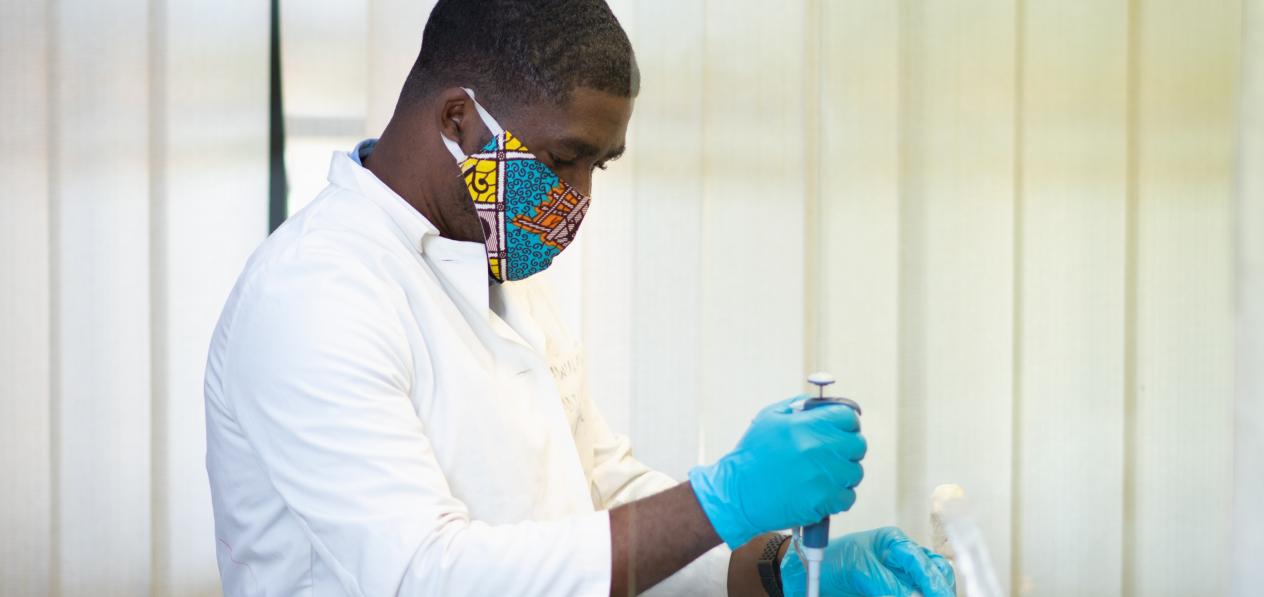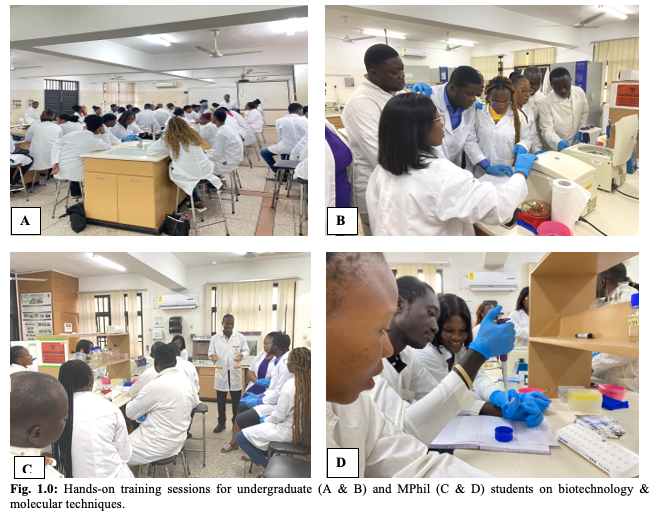Hands-on Training of Masters and Undergraduate Students on Biotechnology and Molecular Tools & Techniques

In the period under review, the Biotechnology Centre received a total of 204 students (12 MPhil and 192 undergraduate students) from the Departments of Plant & Environmental Biology and Crop Science for hands-on training in biotechnology and molecular biology tools & techniques. The training was structured to provide comprehensive practical experience (Fig. 1.0) for academic, research and professional delivery. The primary components of the training included:
- DNA Extraction Techniques (CTAB & Modified Protocols): Students demonstrated the use of CTAB method for DNA extraction which is generally effective for isolating nucleic acids from diverse range of plant specimens, including pawpaw, tomato, turkey berry, cowpea, and cassava. Participants were also introduced to alternative DNA extraction methods tailored for specific types of samples (fungal and bacterial isolates) thereby enhancing their versatility in laboratory settings.
- Standard PCR Technique: Students were trained on the procedures and techniques involved in Polymerase Chain Reaction (PCR), allowing them to amplify DNA for further analysis.
- Gel Electrophoresis: Practical sessions on gel electrophoresis provided hands-on experience with DNA separation and visualization techniques, helping students understand how to analyze their PCR results effectively.
- Protein Expression Analysis (PAGE): The students also received instruction on Polyacrylamide Gel Electrophoresis (PAGE) for protein analysis, reinforcing their understanding of protein separation techniques in relation to molecular biology.
This practical training initiative is designed not only to enhance the students’ laboratory skills but also to serve as a benchmark for future advancements in molecular biology and biotechnology studies. Furthermore, equipping the students with essential techniques in DNA extraction and analysis seeks to foster a new generation of researchers capable of contributing to innovative scientific inquiries and discoveries in their respective fields. Through these training experiences, students are expected to gain a solid foundation that will enable them to conduct independent research projects and contribute meaningfully to advancements in both academia and industry. The knowledge and skills acquired during this program will undoubtedly play a crucial role in their future endeavors in molecular biology and biotechnology research.

